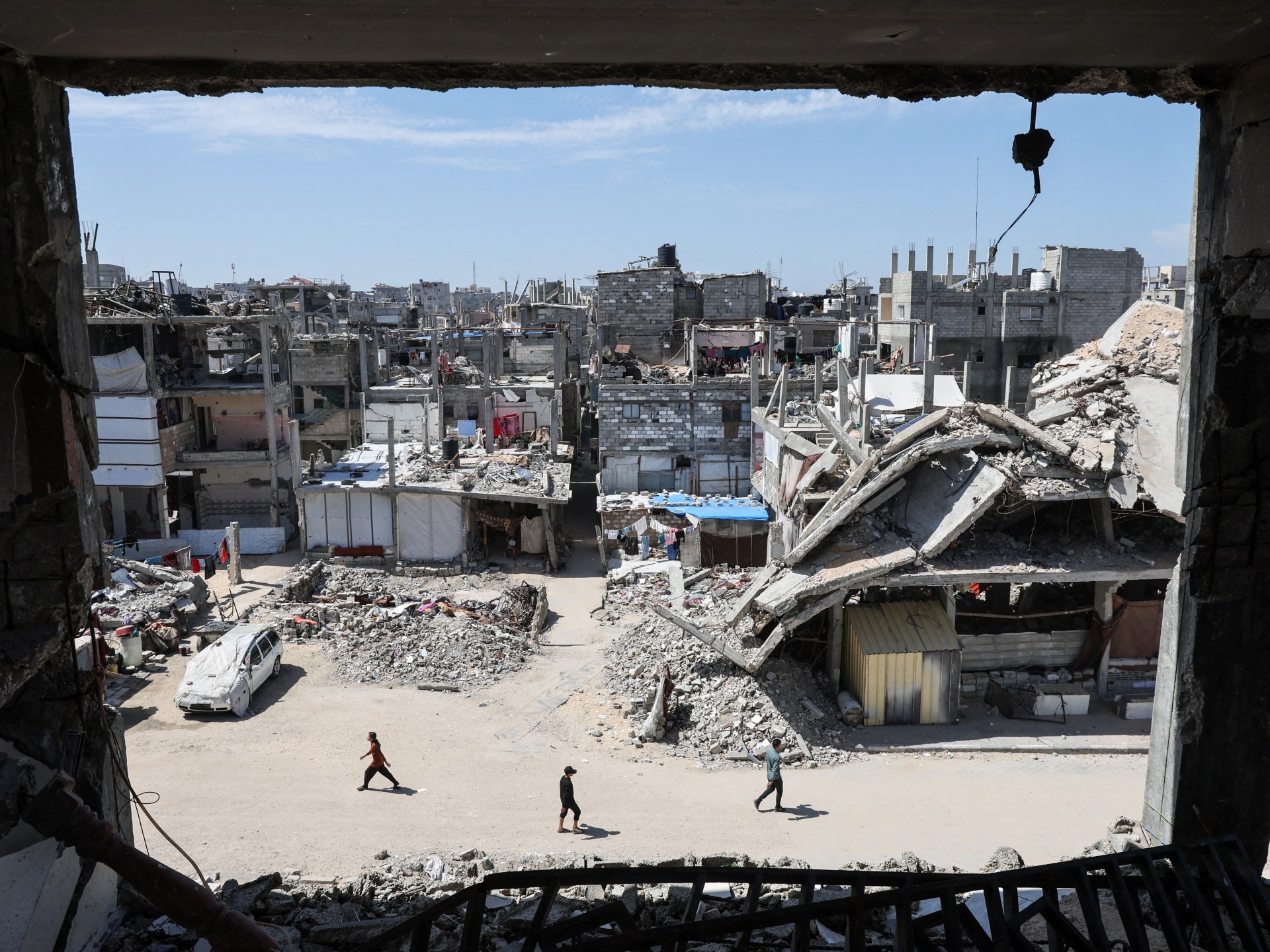On May 15, 1948, my grandfather Saeed was just six years old when Zionist militias attacked his village in Beersheba, forcing his family to flee. His mother carried him as they escaped the horror of explosions and shelling. The nearest refuge was Gaza City. They arrived expecting to stay in makeshift tents for a few days, certain they would soon return to their homes and fertile lands.
They did not know then that their temporary stay would stretch into decades – that the tents would become permanent concrete shelters. The house keys they clung to would rust, transforming into symbols of a right of return passed down through generations – 77 years and counting.
For most of my life, the Nakba lived in the past, a tragedy I inherited through my grandfather’s stories. But since 2023, I have lived my own Nakba in Gaza – this time in real time, under the lens of smartphone cameras and television screens. The militias that once expelled my grandfather have become a state with one of the world’s most advanced armies, wielding deadly weapons against a besieged civilian population demanding only freedom and dignity.
In October 2023, Israel launched a campaign of forced displacement that eerily echoed what my grandfather had endured. Residents of northern Gaza were ordered to evacuate to the south – only for those areas to be bombed as well. Entire families walked for hours, barefoot, carrying only what they could. Once again, people found themselves in tents – this time made not of plastic but of scraps, cloth and whatever could shield them from the harsh sun or bitter cold. We faced death without bullets. Newborns died of cold and dehydration. Diseases the world had nearly eradicated like polio and malaria returned due to unsanitary conditions. Israel tightened its blockade, preventing food, medicine and basic essentials from entering. According to the World Food Programme, 96 percent of Gaza’s population now suffers from food shortages, ranging from moderate to catastrophic. The World Health Organization has confirmed at least 32 deaths from malnutrition among children under five and warns that the toll will rise.
We now live as our grandparents once did: no electricity, no running water, cooking over firewood or in clay ovens. Smoke fills the air and clogs the lungs of mothers while children sleep with empty stomachs. Donkey carts have replaced cars – destroyed or rendered useless by fuel shortages. The occupation has stripped us not only of our land but also of the very basics of life.
My grandfather who witnessed the first Nakba did not survive a second one. After a year of suffering, hunger and the absence of medical care, he passed away in October. He had lost half his body weight in a matter of months. His once-strong frame – he had been a proud athlete – was reduced to skin and bone. In his final days, he lay bedridden, silently enduring strokes and pain with no medicine, no proper food and no relief. I still remember our final embrace on October 11. It was a silent farewell. A tear slipped down the wrinkled cheek of a man who had witnessed too many wars and buried too many dreams. That tear said what words never could: it was time to go. And I ask myself: Would he have survived had there been no war? Could his last months have been filled with care instead of hunger?
As if all this were not enough, Israeli Prime Minister Benjamin Netanyahu has openly called for the displacement of two million Palestinians from Gaza. His rhetoric only confirms decades-old Israeli plans, now receiving full backing from the United States. One such plan is cloaked in the language of “voluntary migration”, but the reality is far from voluntary. Life in Gaza has been made unliveable.
According to the United Nations Office for the Coordination of Humanitarian Affairs, as of July 1, 85 percent of Gaza’s health facilities had been destroyed or damaged, including 32 of 36 hospitals. The education sector is equally devastated: UNICEF reports that 80 percent of Gaza’s schools and universities are no longer functional and at least 94 academics have been killed.
The assault extends even to UNRWA, the UN agency that has supported Palestinian refugees since the original Nakba. Israel’s parliament has banned its operations in Palestinian territory while also bombing food warehouses and pressuring donor countries to cut funding. Why? Because UNRWA’s existence reminds the world of the refugees’ legal right of return. Israel wants that memory – and all physical traces of it – erased.
Entire refugee camps, symbols of that right, have been flattened by bombs. Camps like Jabalia and Shati in the north and Khan Younis and Rafah in the south have been turned into mass graves. Once home to generations of dreams and defiance, these camps now cradle only the bones of those who refused to leave.
So I ask again: Will my grandfather’s dream of returning to his land ever be realised? Or will history continue to turn its cruel wheel, spinning new chapters of exile and suffering? And will I one day tell my own children about our Nakba and our dreams of return – just as my grandfather once told me his?
Source: Aljazeera

Leave a Reply